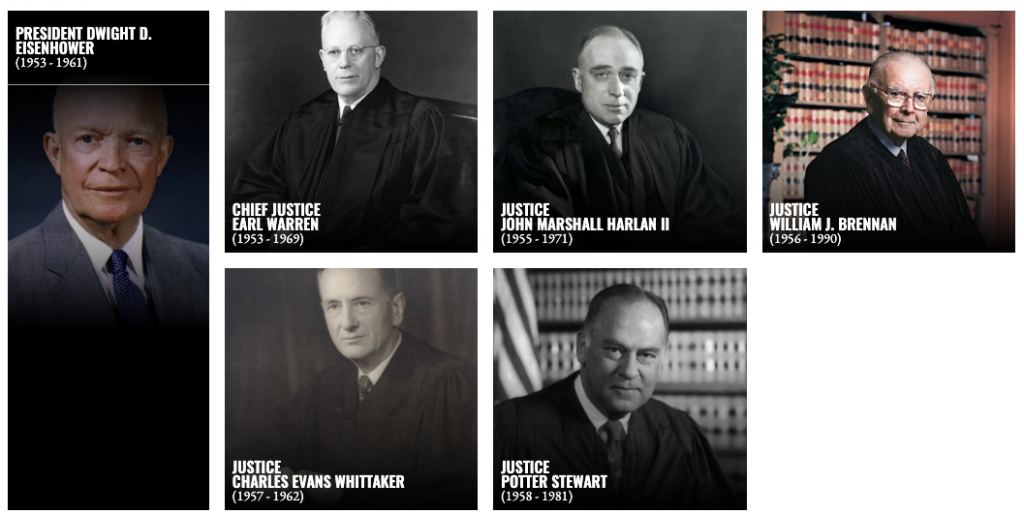The Volokh Conspiracy
Mostly law professors | Sometimes contrarian | Often libertarian | Always independent
Today in Supreme Court History: January 20, 1953
1/20/1953: President Eisenhower takes the inaugural oath on January 20. He would make five appointments to the Supreme Court: Chief Justice Earl Warren, and Justices John Marshall Harlan II, William J. Brennan, Charles Evans Whittaker, and Potter Stewart.

Editor's Note: We invite comments and request that they be civil and on-topic. We do not moderate or assume any responsibility for comments, which are owned by the readers who post them. Comments do not represent the views of Reason.com or Reason Foundation. We reserve the right to delete any comment for any reason at any time. Comments may only be edited within 5 minutes of posting. Report abuses.
Please to post comments


"President Eisenhower is the first President to take the inaugural oath on January 20, following the ratification of the 20th Amendment."
*Sigh*...like shooting fish in a barrel.
https://www.cbsnews.com/news/harry-truman-inaugural-address-1949/
Or for that matter,
https://en.wikipedia.org/wiki/Second_inauguration_of_Franklin_D._Roosevelt
Can we bring back Pathe cinema reels please? https://www.youtube.com/watch?v=KMYq3nkAFTA
Y'all beat me to it.
The 20th got its 36th and final ratification on 1/23/1933. FDR's first inauguration in 1933 was the last one held on March 4.
Cal Cetin is awarded the Noble Prize for achievement in identifying error with respect to "Today In Supreme Court History."
(Is resistance to engaging an editor a point of pride, or matter of orthodoxy, among conservatives?)
Josh Blackman, laughingstock.
Presumably he meant the first *Republican* president to be inaugurated on January 20th. LOL...
Which might make it a Freudian slip of sorts.
Well, *somebody* was the first president inaugurated on January 20. Can't we give Blackman partial credit? Maybe he just meant that Ike was the first president following ratification of the 22nd Amendment. Sure, it wouldn't have made any sense (since Ike's predecessor was a specific exception from the Amendment's no-third-term rule), but it would have been literally true.